Time Management Skills
Time Management Skills
Time Management
Work Smarter Not Harder
I've been finding excuses all day to put off my start to writing this article on the topic of "Time Management".
I can probably justify the importance of putting out the hard rubbish that I've booked through my Local Council to be collected tomorrow. I only get one free hard rubbish collection each year and tomorrow is it.
Less justifiable was my raking up of leaves and fallen foliage after recent strong winds. This task was not so urgent and could've been done next weekend when I have some free time.
However, there's no doubt that my preoccupation with responding to Facebook messages; commenting on recent posts; and reading/replying to non-urgent emails was pure 'time-wasting', a way of distracting myself and avoiding the task at hand. This was definitely not good time management.
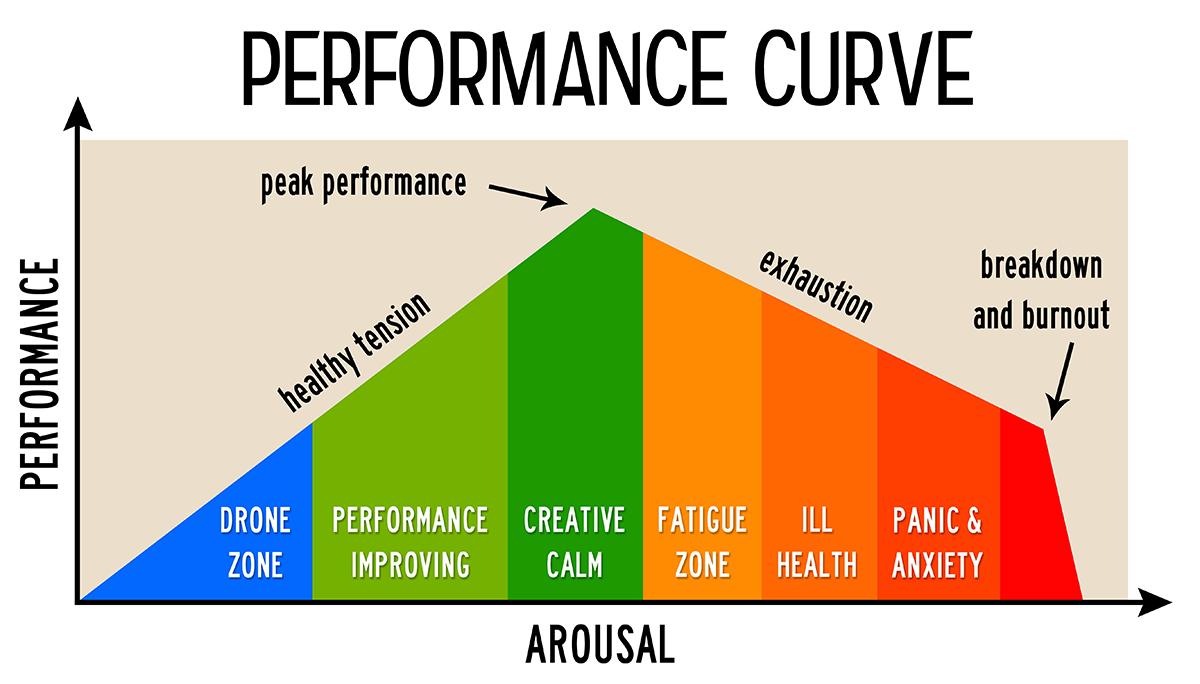
What is it about human nature that we so often do not appropriately prioritise our work and other activities, resulting in poor time-management?
Thankfully, the distinguishing features of poor time management and the principles of effective time management strategies have been analysed and documented by better time-managers than me.
Time Management is the process of organizing and planning how to divide our time between specific (and often competing) activities. Good time management enables us to work more efficiently and effectively towards productive outcomes and thus create more 'down time' for rest, recreation and family activities.
Developments in technology have created a world where work can be commanded and undertaken from almost anywhere. Emails, video conferencing, social media platforms, smart-phones and remote connection to the office computer may have freed us from having to be physically present in our workplace, but this is often at the cost of forcing us to be mentally present at all times for work, even on weekends or while we're on vacation.
Good time management enables us to work smarter, not harder.
Focus on the Important
Professor Alex Edmans, in a paper based on his Gresham College business lectures, explores strategies and skills associated with "Time Management in the Digital Age":
Traditional time management involves writing a "To Do" list. How do we decide what to do first? One approach is captured by the Covey* framework... Under this approach, people start with urgent tasks first - the ones with the most pressing deadlines. That seems to make sense, since deadlines need to be met. Indeed, it's the time management technique engrained in us since school days - we'd do homework due tomorrow before homework due next week.
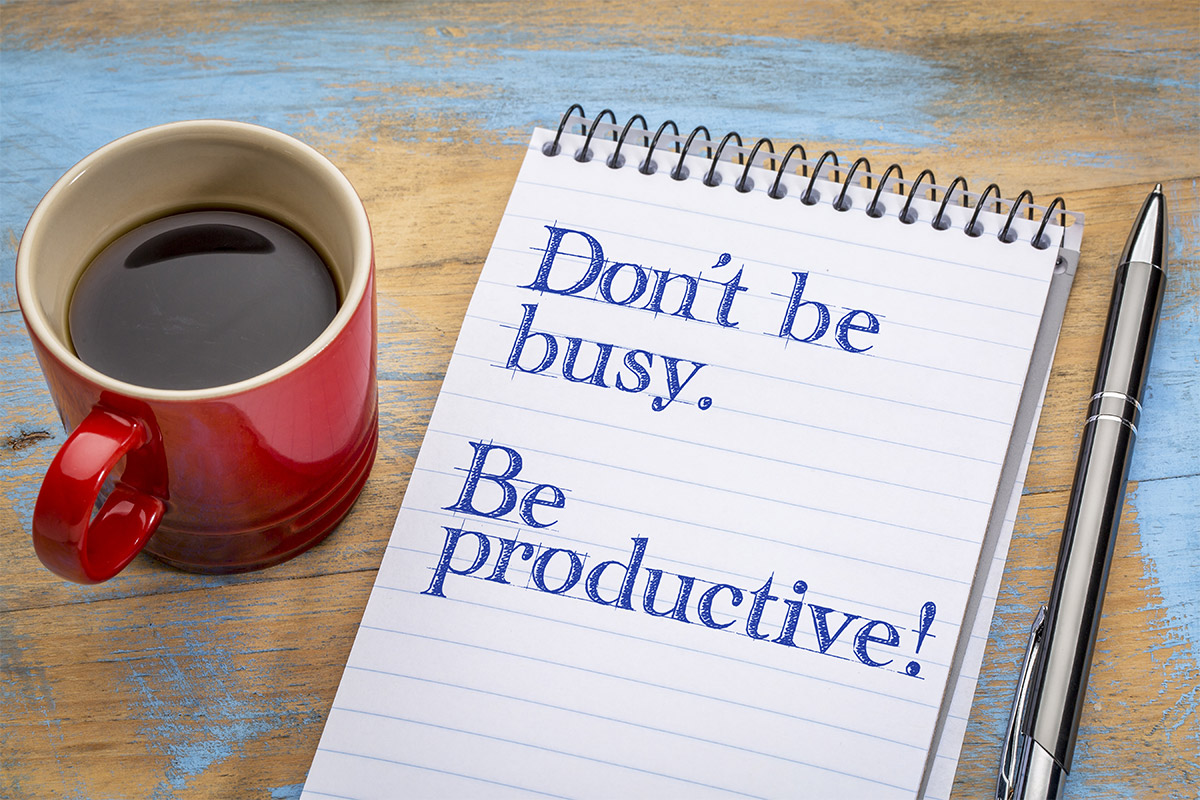
A second approach (not in Covey) is to start with the easy tasks first - the low-hanging fruit, which takes less time to complete. This is tempting because it's addictive to tick items off your to do list - you get a dopamine hit each time you do so.
Both approaches are efficient. Under the first approach, you hit every deadline. Under the second approach, you may end up crossing 19 things off your 20-item "To Do" list by the end of the day - seemingly a 95% success rate.
But neither is effective. The first approach is ineffective since life would be empty if it was just about meeting other people's deadlines. Instead, life is primarily about doing what you want to do. The second approach is ineffective since the one task out of 20, that you failed to do, was actually the most important item. Covey thus suggests stratifying tasks not based on their urgency but their importance:
The real challenge of time management is prioritising the important activities. They should be the first items we tackle on our "To Do" lists - even if they are not urgent, and even if they are high-hanging fruit.
An alternative, and more actionable, framework is to define "important" as things that you want to do rather than things that you have to do. The latter are externally-imposed tasks. If you don't do them, someone else will bring it to your attention - e.g. meeting a work deadline, paying the rent. The former are internally-driven tasks which no-one will bring to your attention if you fail to do them.
Examples might be (in a work setting) to read up on artificial intelligence (AI) and the opportunities it presents for your business, or (in a non-work setting) to learn the guitar or to do a triathlon next year. If you fail to do them, there will be no external consequences. But the internal consequences will be much more severe, since these are things that you really wanted to do.
To apply this framework each day, Covey suggests that you start the day by defining your "Wildly Important Goal". This is the one task that you want to accomplish that day - if you didn't accomplish it, you'd consider the day a failure no matter how many other tasks you achieve. Note that he recommends prioritising one task, not two or three. Many of us like to think we can multi-task, but that's unrealistic without sacrificing quality. Choose one task - which is why he uses the seemingly strong adjective "Wildly". Some days, you might be productive and get two or three done. But the first priority is to ensure that you get that one done.
Covey suggests starting your day with the Wildly Important Goal. You focus single-mindedly on it, ignoring other distractions. Only once you've completed it should you turn your attention to the rest of your "To Do" list.
Time Management Concepts and Models
ABC analysis
A technique that has been used in business management for a long time is the categorization of large data into groups. These groups are often marked A, B, and C - hence the name. Activities are ranked by these general criteria:
- A Tasks that are perceived as being urgent and important,
- B Tasks that are important but not urgent,
- C Tasks that are unimportant but urgent,
- D Tasks that are unimportant and not urgent.
Some individuals choose to then force-rank all "B" items as either "A" or "C". ABC analysis can also incorporate more than three groups.
The Eisenhower Method
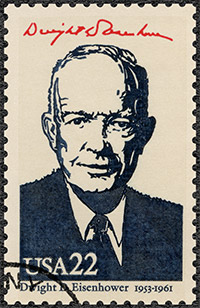 The "Eisenhower Method" stems from a quote attributed to Dwight D. Eisenhower: "I have two kinds of problems, the urgent and the important. The urgent are not important, and the important are never urgent."
The "Eisenhower Method" stems from a quote attributed to Dwight D. Eisenhower: "I have two kinds of problems, the urgent and the important. The urgent are not important, and the important are never urgent."
Tasks are then handled as follows:
1. Important/Urgent quadrant are done immediately and personally e.g. crises, deadlines, problems.
2. Important/Not Urgent quadrant get an end date and are done personally e.g. relationships, planning, recreation.
3. Unimportant/Urgent quadrant are delegated e.g. interruptions, meetings, activities.
4. Unimportant/Not Urgent quadrant are dropped e.g. time wasters, pleasant activities, trivia.
However, Eisenhower seems to say that things are never both important and urgent: So he has two kinds of problems, the urgent and the important.
POSEC method
POSEC is an acronym for "Prioritize by Organizing, Streamlining, Economizing and Contributing".
It suggests that by attending to one's personal responsibilities first, an individual is better positioned to shoulder collective responsibilities.
Inherent in the acronym is a hierarchy of self-realization, which mirrors Abraham Maslow's hierarchy of needs:
1. Prioritize - Your time and define your life by goals.
2. Organize - Things you have to accomplish regularly to be successful (family and finances).
3. Streamline - Things you may not like to do, but must do (work and chores).
4. Economize - Things you should do or may even like to do, but they're not pressingly urgent (pastimes and socializing).
5. Contribute - By paying attention to the few remaining things that make a difference (social obligations).
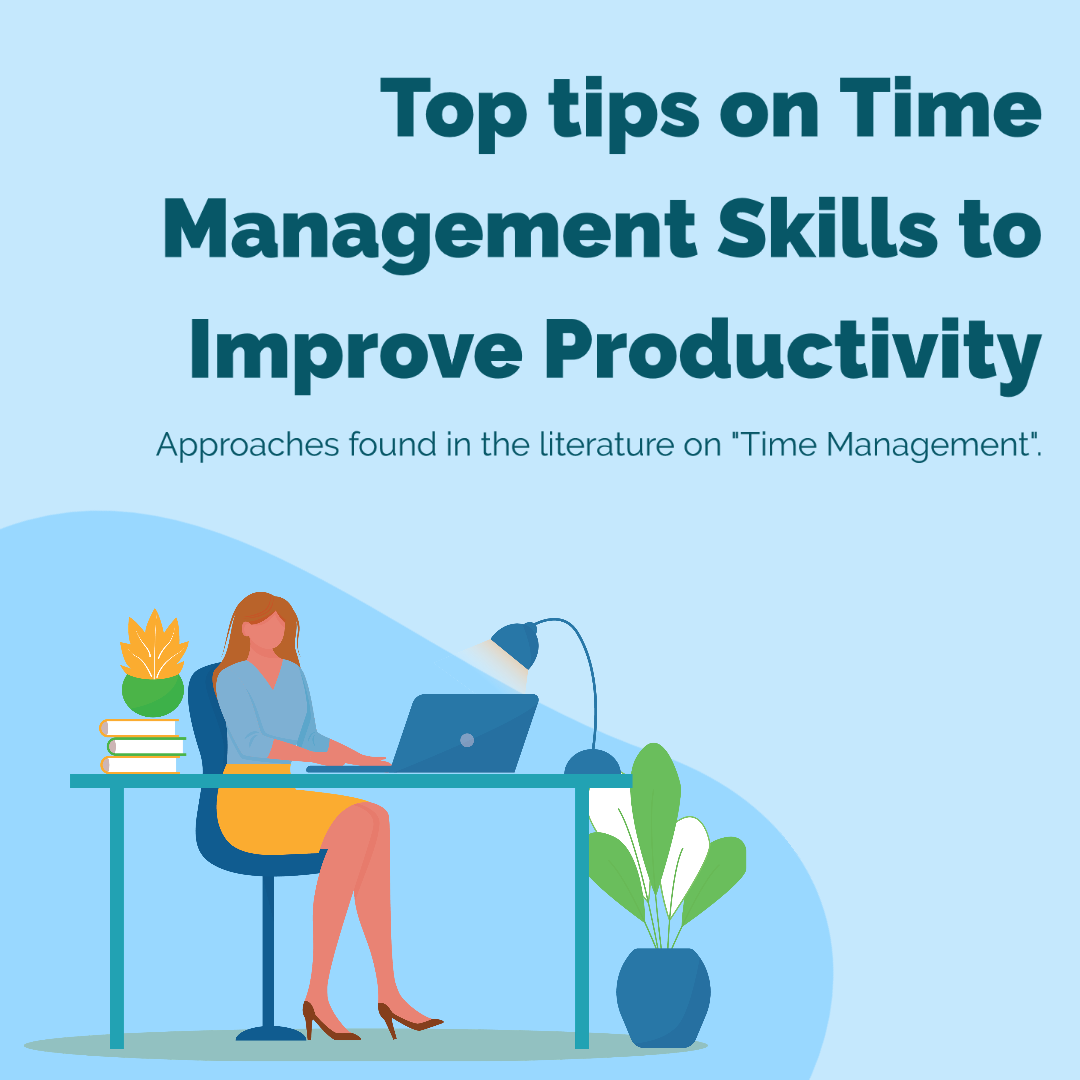
Time Management Skills to Improve Productivity
The following are a small sample of the practical skills and approaches found in the literature on "Time Management":
1. Prioritisation
The ability to prioritise is one of the most important time management skills because if we aren't doing what's important, it doesn't matter how efficient we are doing our unimportant tasks - we are still wasting our time.
2. Setting Goals
Many of us never reach the level of success we desire or wish to accomplish in all areas of life: career, family, relationships, health, etc., because we do not have well defined, clear goals or have them written down. If we don't define where we want to go, we shouldn't complain when we don't get there.
3. Delegation
One hindrance undermining our effectiveness and efficiency is when we do not delegate tasks.
When we delegate tasks effectively, we are much more productive; that is, when we pass on the tasks that aren't as important to us (or that we are not as good at) and focus on the tasks that only we can do and/or are the most important to us.
3YSOwls.com.au are Corporate Governance Consultants who "assist in navigating the complex world of regulation and compliance" a great example of how some companies can delegate or outsource certain tasks.
4. Planning
Planning can help us focus on what's important versus what's urgent. It helps us make sure what we do each day aligns with our goals, priorities and key tasks at work.
At a bare minimum, we should plan for the next day ahead of time. Planning for the week also helps us better align our tasks with our priorities even if it's just knowing the general tasks or themes not necessarily every task set for every day.
Planning for the month can also be helpful in focusing on our priorities.
5. Managing/Scheduling Tasks
Managing goes hand in hand with prioritisation.
Whether working from a list, diary or calendar, scheduling (which is a part of planning) is important. Setting blocks of uninterrupted time, for example, or setting times to work on certain tasks can be a boost to productivity.
Scheduling doesn't mean we cut out spontaneity, it helps us focus on the more important tasks. When something spontaneous pops up, we can look at our schedule to make sure the spontaneous activity is actually important and worth doing now or later or ignoring it.
6. Taking Good Notes
Being able to take good notes can save time.
How many times do we "know" we will remember something without writing it down and then we forget it.
Bad handwriting can also let us down. When we can't read what we write, we waste not only the time it takes to write it but the time we take trying to figure it out.
A notebook is like a second brain. When we write everything down, we free our mind from the things that we are trying to remember and it allows our brain to focus completely on the task at hand without the distraction of trying to remember everything.
7. Setting Deadlines
Parkinson's Law is the adage that "work expands so as to fill the time available for its completion" i.e. the task will fill the time we allot it. When we set deadlines, it helps us get tasks done faster.
8. Overcoming Procrastination
We can overcome procrastination by focusing on our most important task and getting it done. Putting it off only wastes time and makes us less effective and efficient.9. Single-minded Focus versus Multi-tasking
Multi-tasking is a productivity killer.
Study after study has shown that we are less effective when we jump from one task to another.
10. Self-awareness
Being self-aware is an important time management skill.
We should know our energy cycles: when we are at our peak and when we are slowing down. This will guide us to know what tasks to do and when.
Knowing what helps boost our energy lets us prepare and act when our energy starts getting low. It's also important to recognize when we need a break or rest and to walk away from what we are working on.
11. Honestly Examining and Reviewing Ourselves
Being able to examine and honestly review ourselves on a frequent basis helps us know where we are doing well and where we need to improve. If, for appearance sake, we "pretend" we have it all together and are doing okay, we miss out on improving and getting better.
We can give ourselves a daily check-up asking: "How well did I do on my goals/plans/priorities/areas I am working on? Where did I do well? Where can I improve? What steps can I take to improve?"
12. Saying No
One of the biggest ways we waste our time on unimportant tasks is when we have the inability to say "no". It's okay to say "no". It's okay to say that you can't do something. It's okay to have boundaries.
Saying "yes" to one task is saying "no" to another. When you say "yes" to an unimportant task, you are saying "no" to one of your more important tasks.
Especially if someone is trying to use, manipulate or constantly use you to rescue their poor work, say "No".
13. Batching
Batching is a powerful time management skill.
When we switch between different types of tasks, there is a time cost - a switching cost. We not only have to change gears mentally, but we have to change papers, documents, or whatever it is we need for those tasks each time.
When we batch, we do similar tasks together so that we don't have to switch back and forth between tasks.
If we have a lot of phone calls to make, we can do them all at the same time. If we have emails to respond to, we can allot a set time to do them. If we have various reports to sign or review, we can set a time to do all of those together.
In relation to emails, Professor Edmands suggests, creating a subfolder called Today. Any email which needs to be responded to that day, you can file into that subfolder. Once it's out of sight, it's out of mind, and you can focus on the important task(s) you've set yourself for the day. When you've finished...you then go to your Today folder and attend to the items that you need to do today.
The concept of the Today folder is flexible and should be tailored to your circumstances. You may also create a This Week folder, with items to complete by the end of the week and start going through this on Friday... Some people who work in faster-paced jobs may need a This Morning folder.
Even a Social Media and/or Online News folder can be created to batch together items and threads to be viewed at a convenient time, when the important and/or urgent tasks have been completed.
Whatever it is, find ways to group and batch tasks together.
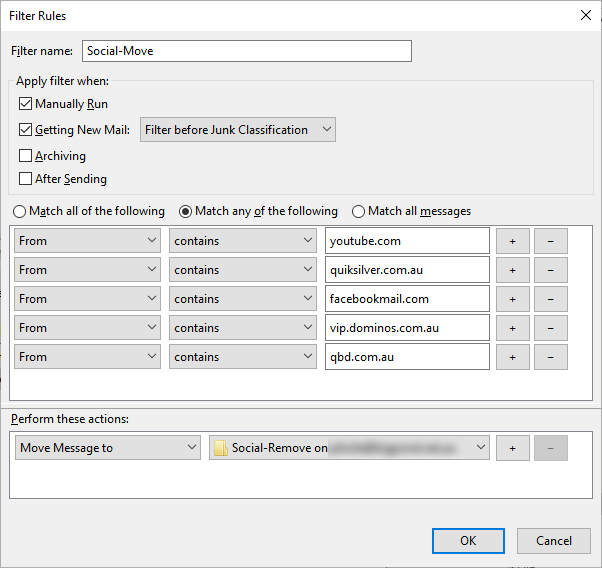
14. Minimising Distractions
Distractions are a productivity killer. Whether they are external or we create them for ourselves, if we don't manage them, they will hurt us.
Distractions can come from people stopping by; emails and notifications constantly beeping and buzzing; a "quick" look at Facebook; an uncomfortable chair...
If people keep interrupting, find ways to stop them (e.g. 'do not disturb' sign, setting times for visitors, wearing headphones). Turn off notifications for your email and phone and only check them at set times.
If we can't resist wasting time on the internet, we get can get a blocker app that will do it for us.
Distractions don't have to control us. We can find ways to manage and minimize them.
(adapted from: 50 Time Management Skills That Will Catapult Your Productivity (in 2020) - by Thomas R. Harris https://www.theexceptionalskills.com/time-management-skills/ )
Time Management in the Digital Age
Professor Edmands has further words on the potential for the digital sabotage of our efforts to manage our time:
Email isn't a natural disaster - it's a man-made disaster.
Emails mean that it's very easy to be burdened by requests. Now, complete strangers can send requests to hundreds of people at once. In the past, they'd have to type up or even hand-write a letter, put a stamp on it, and take it to a post box. In the office, a colleague would have to telephone you or speak to you in person. Given the time cost, she would ensure that you're the correct person before doing so. Now, she can send a "mass outreach" email to several people, without checking if they're all relevant.
One type of unnecessary email is one which asks for information that I can find out myself. Most people know of the "spoof" website "Let me Google that for you" (www.lmgtfy.com), which answers an unnecessary question by showing the sender how he could have typed it into the Google search bar and found the solution - yet they still send many emails where the answer is available online. I often receive emails asking for information that's freely available on my website...
A second type of unnecessary email is one that's incomplete. That not only imposes a cost on the recipient, but imposes a cost on me because it means that the recipient needs to ask a clarifying question (given the incompleteness) and I need to reply to her email...I realised that's because I'm part of the problem - many of the emails I receive are in response to unnecessary emails that I've sent. When you send an email, try to give all the information the recipient needs so no follow-up is required.
Using a tennis analogy, try to hit a winner. If you just get the ball back over the net, the recipient will return it and force you to take another shot. [For example]
"I was wondering if you had a spare moment to chat about a high profile event that I am organising in January"
There are several issues with that email. First, it is not clear what date in January the event is taking place at. It would have taken the sender a split-second more to have written January 2 or January 22, but not doing so caused me to send a reply asking for the date, and for the sender to have to respond to that email.
Second, it is not clear what the event is about. If it's about Finance, then I might indeed be able to help. If it's about Fine Arts, then I won't. Again, this requires me to ask for a clarification.
Third, it's not clear what the sender wants from me. Does she want me to speak at the event (in which case I would also need to know its location)? Or does she want my advice on which speakers to invite? The subject line of the email, "Some Advice", also did not help.
...Time management in general, and good email practices in particular, are very difficult to improve by ourselves - it's a community effort. In addition to not being part of the problem by sending unnecessary emails, we can proactively be part of the solution. First, by being fully focused and not checking email in a group setting, we encourage others to do so also... Conversely, checking email is contagious - research shows that when one person gets out their phone, others do so too.
Emails Cause Addiction
Edmans warns of the dangers of email addiction:
Constant checking of emails causes addiction and makes it difficult to focus even during "work" time. Checking emails is similar to gambling. At slot machines, you usually lose money. But people get addicted to slot machines since there's the rare possibility of a jackpot. Similarly, most emails are undesirable - a boss or client asking you to do a task. But we're addicted to email because, once in a while we hit the jackpot - an email conveying good news, or from a friend we'd lost contact with. Thus, incessantly checking email makes us more addicted to "gambling" and requires us to keep feeding our habit, rather than being able to concentrate.
... Studies have shown that a constant craving for distraction changes the neuroplasticity of the brain - certain neural pathways form and others get closed down, which means that the same people find it difficult to focus when they get down to actually doing work.
When you do a plank [at the gym], you build up your core muscles which allow you to hold the plank for longer. Similarly, when you concentrate, you build up your mental "muscle" which allows you to concentrate for longer.
If you can't go without email on your phone, at least remove the buzz when you get a new email, and the notification "badge" which tells you how many emails are unread. (ibid)
A Meeting That Could Have Been an EMail
With good email practises many 'meetings' can be avoided and replaced by an effective email instead.
- Use an effective subject not a re:
- Use a concise introduction
- Use clear points and attach relevant documents
- Only attach documents your audience can read (eg pdf jpg)
- Universal look (must work for most email clients)
- If keeping responses and replies trim to important points
- Treat it like a document
- Never be 'nasty or sarcastic'
- Use appropriate cc and bcc practices
Hard Task Restarts
"Everyone experiences bouts of procrastination or work-avoidance, and the guilt that comes with them. There is no avoiding these experiences entirely, but there are some strategies that can help us stay focused."
Make space
Professor Badre maintains that to solve hard problems, the brain needs ready access to the information, plans, procedures and knowledge it will be using. Cognitive scientists refer to this collective task knowledge as a 'task set'. Understanding cognitive control can help our working life.
Badre advises that returning to a hard task comes with a 'restart' cost. We must spend time and mental effort getting back into our task set, rather than making progress. For this reason, it is important to create time and space for hard tasks:
- Set aside large blocks of time... Long gaps are needed not only because of the intense thought and work required by hard tasks, but also because we need some time to re-establish our task set. Switching frequently between tasks makes it harder to produce quality work.
- Be consistent. We should try to reserve a consistent time and place for our hard work and be protective of it. Ideally, we should find this time and place every day. Even if we don't make progress one day, that time should be spent on our hard task rather than other tasks. Consistency can aid memory: memory retrieval is context dependent... Thus working on a task in the same context repeatedly might aid retrieval and help us to re-establish our task set when we restart.
Learning
Learning is the ultimate competitive advantage. Techniques to learn something fast can vary.
"Identify how you learn best and double down on that method."
There are different types of learning-:
- Self-directed learning
- Classroom learning
- Peer-to-peer learning
- Social learning
- Learning by doing
Learning a complex task like computer programming may require use of simple notes and a document to find snippets of code with explanations. This is self-directed learning and learning by doing. Setting up specific test environments will dramatically decrease the time to test code. Many people originally learn computer programming in a classroom. That classroom environment sometimes involves splitting up into groups - social learning. Peer-to-peer learning is common - where you may go online and look at code snippets of other programmers. Given in programming you are concentrating on a specific task, it is very easy to forget past examples. Hence the use of notes and comments within code is very important.
Think about how you learn best and take Andrea Clarke's advice "double down on that method".
Functional Redundancy
When a species is disrupted in the ecosystem, it can be tolerated due to a term called "functional redundancy", whereby a species is not reliant on any one species, it's reliant on a complex web of multiple species.
So to continue with the computer programming analogy the way you learn and also what you decide to learn is important. You want to avoid wasted effort. We need to keep scanning the horizon to adapt for the future. When the programming system Flash slowly became redundant, programmers who specialised only in it would be worse off than those that broadened their learning.
It is often the specialists hardest hit in shift. Think pianola tunists as an example. Humans have evolved to change.
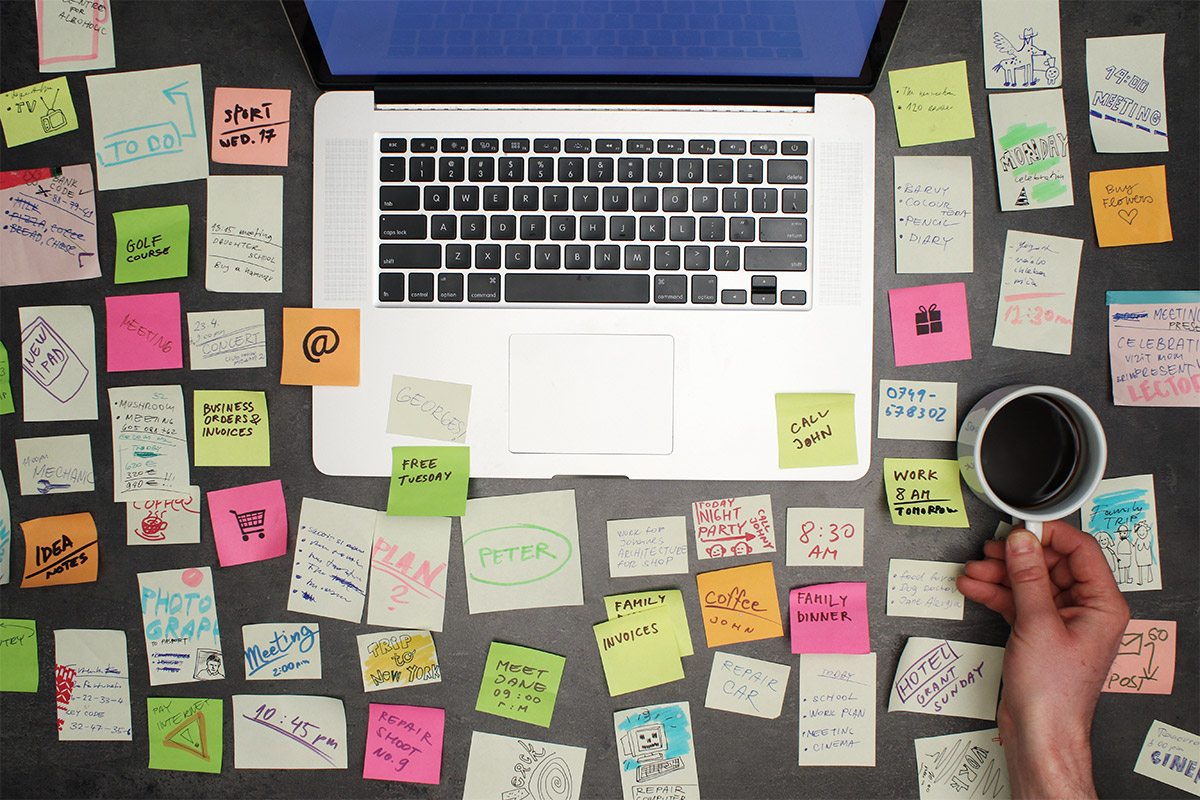
Never multi-task
Badre suggests that when we do two or more tasks at once, either at the same time or switching between them, our performance efficiency and quality suffers, partly because the tasks use shared cognitive resources, such as working memory. As a result, they will compete for that shared resource and interfere with one another. When doing a hard task, it is important to minimize this interference from multi-tasking:
- Stay with it. Finding the right structure often takes time. We might not make progress on a hard task every day, but it is important to keep trying. And we must be kind to ourselves when progress isn't readily made.
- Often, the structure we invent doesn't work for our problem and leads to dead ends. When stuck, we must be willing to re-conceptualize a problem and look for new ways to address it.
- Take breaks... It is important to take breaks from difficult work. This not only keeps the mental costs low, but might allow new concepts and structures to be considered. There is evidence that incubation of this kind helps problem solving.
- Interact with others... [This] can help us conceptualize a problem in new ways. Talking to people with diverse backgrounds, perspectives and viewpoints that differ from our own can be a powerful way to break out of a rut and make progress, as well as get some perspective.
"There are no simple tricks or get-smart-quick schemes that can make hard tasks suddenly effortless. But, if we are able to make space for our work, avoid multi-tasking and pursue good problem-solving strategies, we might be more successful at the hard tasks we want achieve."

Make decisions 'right'
Ellen Langer, professor of psychology at Harvard University in an ABC radio podcast titled making decisions like a pro suggests there is often no correct decision.
Most of the stress that we experience, comes from making decisions and the worry about, is this the right decision. So if you are stressed other parts of your life will suffer.
It's not about making the right decision it is about making the decision right. And that means if it is a hard decision, the decision is close.
Don't Lose Sight of the Urgent
It's tempting to think that time management is simply about designing a plan and then executing it - all you need is enough willpower and discipline in execution. But the 21st century isn't like that. Some urgent tasks are truly urgent and we can't cheerfully ignore them in blissful pursuit of the important.
You might start working on your important task at 9am, but something unexpectedly lands on your desk at 10am - after you've devised your plan for the day - and demands to be resolved by that evening. To go back to Covey's "journey" analogy, weather or road conditions can knock you off course. It would be unwise to insist on sticking with your initial destination rather than changing it. (ibid)
Professor Edmans poses the following provocation in his paper on "Time Management in the Digital Age":
The key to time management is this: how to focus on the important, without losing sight of the urgent?
It's Monday. And I began the day by prioritising the completion of this article as a "Wildly Important Goal" with a deadline to finish it by the end of the day. Mission accomplished. To do so, I put aside an "urgent" writing assignment, having already commenced a first draft after completing the basic research. I have now set a deadline of close of business this Friday to complete my "urgent" task.
I am applying my newly acquired Time Management skills through prioritising my "To Do" list; eliminating social media, online news and people interruptions; and batching less important tasks, phone calls, messages and emails. This fills me with confidence that I will achieve the goals I have set myself for this week by working smarter not harder.
Researched, Compiled, Composed, Written and Edited by Dr Steve Gration - January 2020Sources and References
https://www.abc.net.au/radionational/programs/bigideas/time-management-in-the-digital-age/11654004
https://www.gresham.ac.uk/series/business-skills/
https://www.gresham.ac.uk/lectures-and-events/time-management
50 Time Management Skills That Will Catapult Your Productivity (in 2020) - by Thomas R. Harris https://www.theexceptionalskills.com/time-management-skills/
Covey, Stephen R: 7 Habits of Highly Effective People. Free Press, 1989.
Professor David Badre. Tips from neuroscience to keep you focused on hard tasks, 15 March 2021 in
https://www.nature.com/articles/d41586-021-00606-x?utm_source=pocket-newtab-intl-en
It's okay to say "no".
One of the biggest ways we waste our time on unimportant tasks is when we have the inability to say "no". It's okay to say "no". It's okay to say that you can't do something. It's okay to have boundaries.
Saying "yes" to one task is saying "no" to another. When you say "yes" to an unimportant task, you are saying "no" to one of your more important tasks.
Especially if someone is trying to use, manipulate or constantly use you to rescue their poor work, say "No".
A Gold Coast SEO and Web Developer